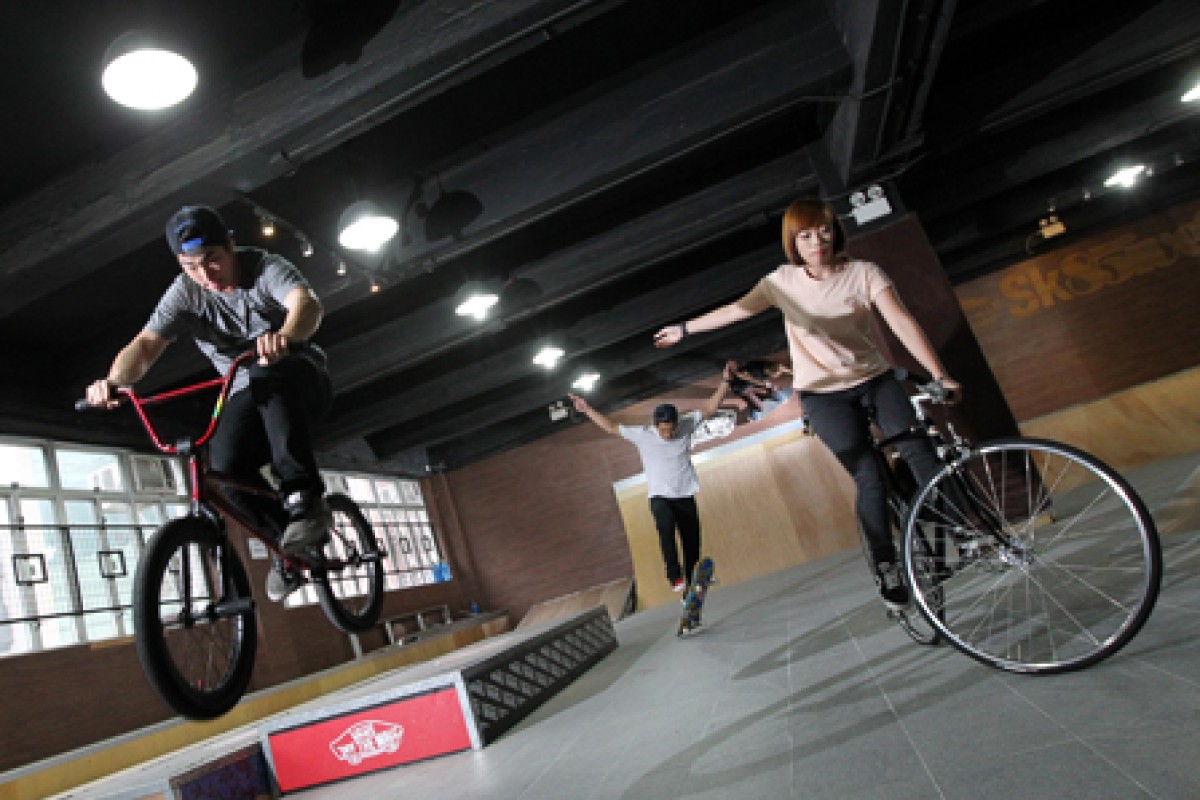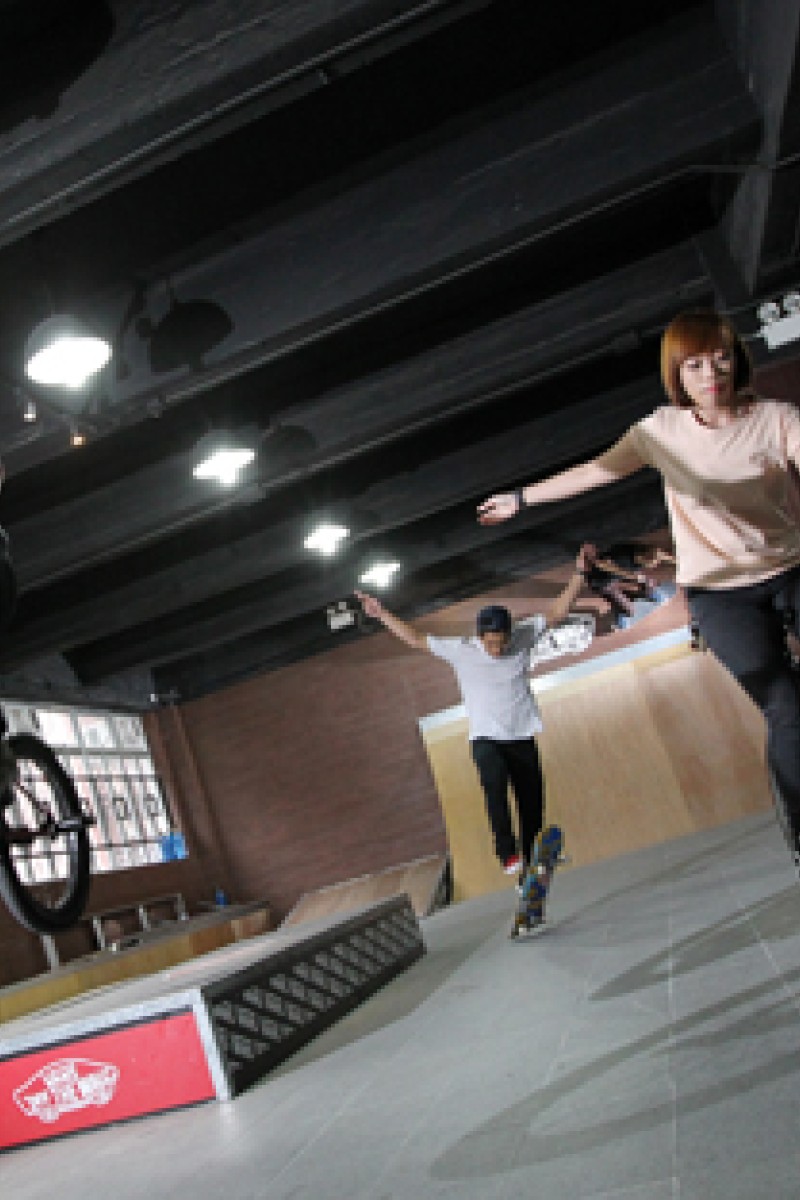 (From left) X-Gamers Paco Chan, Luk Chun-yin and Mag Siu enjoy their hobby.
(From left) X-Gamers Paco Chan, Luk Chun-yin and Mag Siu enjoy their hobby."This is just the way it is," Yeung says. "People see kids hanging out at night and think they are troublemakers. But the truth is they can only enjoy their hobby at night, when there are fewer people around.
"They are not making trouble; they are trying to avoid it."
Yeung should know. She started interacting with youths who dance and skateboard on the street a decade ago. She adds that Hongkongers have come a long way in recognising the value of street culture.
"People used to frown upon [teens] on skateboards. They did not respect it as a sport. Same with dancing or graffiti. People did not consider them as art. But that was in the past; now people understand more about street culture," she says.
As evidence, Yeung cites the Hong Kong International Street Jam Festival held on May 19 at Victoria Park, which was the first government-sponsored street culture event. "Street culture is gaining recognition," she says.
And about time, too. Street culture, she explains, allows young people to express themselves in their own ways. "A youngster might not be a talented football or basketball player, but he may be excellent at doing skateboard tricks. Not all artists have to paint with oil; graffiti can be a channel for youths to showcase their talents," she adds.
Yeung says she has seen many young people transform their lives through street culture.
"Before people complain about young people making a noise [with their] skateboards or hip-hop dance, they should think about giving them space to do things they like," she says. "These teens are much better off riding bikes and dancing than locking themselves up in their room playing computer games - or even worse, taking drugs."
Luk Chun-yin echoes that view. The Hong Kong pro-skater started skateboarding 11 years ago at a park in Sha Tin. "Over the past decade, facilities for skateboarding have improved tremendously, thanks to various skate parks," he says. "More locals now accept skateboarding as a [legitimate] sport."
But that doesn't mean street culture is fully accepted in the city, says BMX rider Paco Chan.
He agrees that facilities have improved for fans of X-Games, but insists that more needs to be done. "The Po Kong Village Road Park is a perfect place for X-Games but it requires users to get a licence," he explains. "No skate park in the world requires a licence. [That] is ridiculous and it obstructs the development of the sport."
Mag Siu agrees. She is a member of Fixielicious, a local girl group with fixed-gear bicycles - single-speed bikes with no freewheel mechanism.
She says Hong Kong is not a bicycle-friendly city.
"The bike track design is terrible," she laments. "There is a break in it every few hundred metres so riders have to stop, get off, and walk with their bikes several times during a ride."
